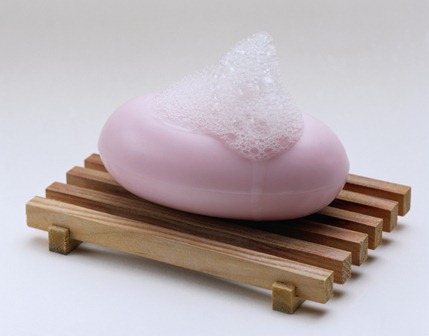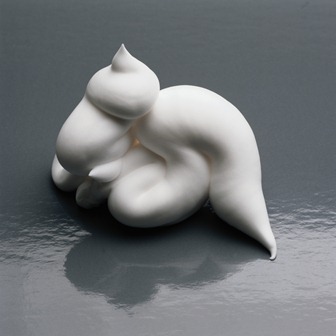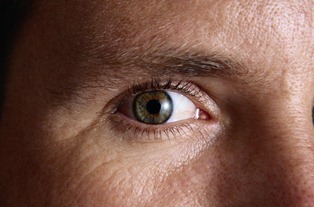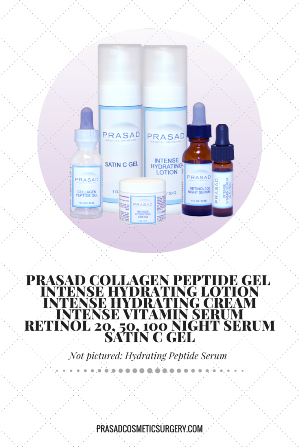Our skin is our body’s largest organ, and its primary function (along with regulation and sensation) is to act as a protective barrier against external elements such as the weather, temperature, bacteria, chemicals, and radiation. It is easy to see what a vastly important role skin has in shielding and protecting us on a daily basis;
Since our skin is our first line of defense and bears the brunt of the effects of the external environment, it is of vital importance that we keep it in the best possible condition. While there are many elements which can damage your skin, dryness is one aspect of your skin that you can address right now.
What is Dry Skin?

Dry skin occurs when the outermost layer of the epidermis, the stratum corneum, loses valuable phospholipids. These phospholipids, in tandem with keratin, keep the stratum corneum in optimal functioning condition, and thus, when it is compromised, it renders your skin more susceptible to irritants. Moisturizing prevents the breakdown of this important layer of skin.
Unfortunately, many people (both men and women alike) are not in the habit of moisturizing, and often subscribe to the belief that simple washing with soap is all that their skin needs. The truth is that moisturizing is just as important as washing.
The Benefits of Moisturizing
- Moisturizing after washing your face or taking a shower traps and retains moisture inside the skin, keeping it refreshed and supple. This is especially important if you’ve been outdoors all day or if you’ve been wearing make-up for hours, as those two things tend to sap moisture from skin.
- It takes care of dry, scaly skin, which eventually helps prevent the appearance of fine lines and wrinkles as you get older. Dry skin, if left alone, will have a tendency to flake off, or even become cracked, in more severe cases. Supplying it with added hydration stops this from happening.
- It can ease irritation on sensitive skin. For particularly dry skin, irritation can come in the form of itching, painful cracks and fissures (which can lead to infection), and peeling. This, coupled with lifestyle factors such as smoking and drinking, can do irreparable damage to skin in the long run.
- The act of applying moisturizer (the light rubbing action) can also help improve blood circulation in the area.
Types of Moisturizers
Moisturizers, also known as emollients, smooth and soften skin by filling up miniscule gaps and cracks in the skin left behind by dead skin cells. There are a number of different moisturizers in the market that are designed for all skin types, but essentially, they can be categorized into two kinds: humectants and occlusives. The concentration of each of these ingredients is what dictates the overall character of the moisturizer.
 Humectants keep your skin hydrated by attracting moisture from the surrounding atmosphere and drawing it to your skin. This is, however, only effective if there is at least 70% moisture in the air. A classic example of a humectant is glycerin, which can be found in many bar soaps and facial washes; while another popular example of this comes in the form of hyaluronic acid, which is created naturally in the body. Despite being more expensive than glycerin, hyaluronic acid is significantly more effective when it comes to keeping skin hydrated and moisturized.
Humectants keep your skin hydrated by attracting moisture from the surrounding atmosphere and drawing it to your skin. This is, however, only effective if there is at least 70% moisture in the air. A classic example of a humectant is glycerin, which can be found in many bar soaps and facial washes; while another popular example of this comes in the form of hyaluronic acid, which is created naturally in the body. Despite being more expensive than glycerin, hyaluronic acid is significantly more effective when it comes to keeping skin hydrated and moisturized.
 Occlusives work by leaving behind a thin barrier or film, effectively slowing down the rate at which moisture evaporates from the surface of your skin. Ideally, these are best applied after a shower while skin is still somewhat damp. However, occlusives are usually quite thick and greasy when applied, and are known to cause breakouts or clog pores. Because of that, these types of moisturizers are more beneficial for people with extremely dry skin and who are not prone to breakouts. Examples of occlusives include petroleum jelly (which is “capable of blocking 98% of water loss from the skin”), beeswax, jojoba oil, lanolin, and the like.
Occlusives work by leaving behind a thin barrier or film, effectively slowing down the rate at which moisture evaporates from the surface of your skin. Ideally, these are best applied after a shower while skin is still somewhat damp. However, occlusives are usually quite thick and greasy when applied, and are known to cause breakouts or clog pores. Because of that, these types of moisturizers are more beneficial for people with extremely dry skin and who are not prone to breakouts. Examples of occlusives include petroleum jelly (which is “capable of blocking 98% of water loss from the skin”), beeswax, jojoba oil, lanolin, and the like.
What to Look for in a Moisturizer
Skin types can be classified into four kinds: oily, dry, sensitive, and normal/combination. The type of moisturizer you should use ought to be suited to the type of skin you have, otherwise, you either won’t get the amount of moisturizing you need, or you’ll be getting too much.
Oily Skin
If you have oily skin, you will need to look for lightweight moisturizers or serums with the labels “non-comedogenic”, “non-acnegenic”, or “oil-free”, as you do not want to aggravate your skin by adding even more oily, pore-clogging ingredients to it.
Dehydrated and Dry Skin
Dehydrated skin is best addressed with thicker or creamier moisturizers with a higher level of humectants. If your skin is particularly dry and very much prone to flaking, you may want to choose oil-based moisturizers with components such as shea butter, grapeseed oil, and other natural plant oils.
Sensitive Skin
If you have sensitive skin, you may want to stay away from the overly perfumed types of moisturizers. Choose moisturizers that come labelled “fragrance-free” or “hypoallergenic” so as to further irritate your skin.
Normal/Combination Skin
Normal or combination skin means that your skin is neither too dry nor too oily, and people with this skin type generally have a wider range of moisturizers to choose from. However, not all skin is the same, and the process of finding the best moisturizer suited for your skin is always that of trial and error.
Aging Skin
Aging skin may benefit more from enriched-formula moisturizing creams. If you’re concerned about wrinkles and  fine lines, you might want to keep an eye out for the following ingredients: retinoids, peptides (including copper peptides), and hydroxy acids. Retinoids are a form of Vitamin A that, upon application on skin, works by speeding up the growth and rejuvenation of skin, resulting in younger-looking skin. Peptides work by increasing collagen production on your skin, improving its ability to stretch with movement, thus rendering it more smooth and supple. Lastly, hydroxy acids—also known as alpha hydroxy acid, beta hydroxy acid, glycolic acid or salicylic acid—act as an exfoliant on skin. They remove dead skin cells and increase the growth of newer skin cells, while addressing the problems of uneven skin pigmentation and other dark, age-related spots.
fine lines, you might want to keep an eye out for the following ingredients: retinoids, peptides (including copper peptides), and hydroxy acids. Retinoids are a form of Vitamin A that, upon application on skin, works by speeding up the growth and rejuvenation of skin, resulting in younger-looking skin. Peptides work by increasing collagen production on your skin, improving its ability to stretch with movement, thus rendering it more smooth and supple. Lastly, hydroxy acids—also known as alpha hydroxy acid, beta hydroxy acid, glycolic acid or salicylic acid—act as an exfoliant on skin. They remove dead skin cells and increase the growth of newer skin cells, while addressing the problems of uneven skin pigmentation and other dark, age-related spots.
Expensive Moisturizers: Do They Work Better?
Expensive moisturizers do not necessarily work better than their cheaper, drugstore-type counterparts, because most of the time, the reason why they’re so expensive is due to the extensive marketing and elaborate packaging that goes into the product. That isn’t to say that they do not work at all, or that one should steer clear of expensive moisturizers altogether. Rather, one should employ a more discerning eye when it comes to choosing the right product for your skin, and not simply be swayed by pretty advertising.
Keep in mind that many of these high-end brands are mostly made up of the same ingredients that can be found in drugstore brands. Similarly, many cheaper brands can offer you the same things that high-end brands can. Ultimately, it really depends on your skin and how well it responds to the product—some people may find certain high-end brands to work better for them, while others may see equally wonderful results with a cheaper brand.
In addition to this, it is important to remember to make healthy lifestyle choices that are good for you and your body. By that I mean getting enough exercise, eating right, staying hydrated, protecting yourself from the sun, hopefully not smoking, and so on. The bottom line is, regardless of how expensive your skin care products are, if you aren’t making smart choices and taking care of your health, you will likely not see much of a difference.
The Prasad Medical Moisturizing Skincare Line
 In order to provide my clients with skincare products that are mindfully formulated to cater to their specific needs and backed by clinical research and sound knowledge of what works effectively on skin, I have developed a moisturizing skincare line suited for different skin types. As this is a medical line, I am able to put more active ingredients such as retinoids into my products than anything available over-the-counter, and even high-end branded skincare lines.
In order to provide my clients with skincare products that are mindfully formulated to cater to their specific needs and backed by clinical research and sound knowledge of what works effectively on skin, I have developed a moisturizing skincare line suited for different skin types. As this is a medical line, I am able to put more active ingredients such as retinoids into my products than anything available over-the-counter, and even high-end branded skincare lines.
The Collagen Peptide Gel and Retinol 20, 50 and 100 Night Serums are both designed to increase collagen production while addressing the signs of photoaging, fine lines, wrinkles, as well as toning your complexion. The Hydrating Peptide Serum, on the other hand, is a hyaluronic acid-based gel that works in the same way, but is water-based, oil-free and fragrance-free, making it ideal for all skin types. It makes for a wonderful make-up primer and lightweight sunscreen for acne-prone skin as well.
The Satin C Gel is a lightweight moisturizer that is ideal for sensitive skin. One of its main ingredients (green tea) reduces redness and inflammation, and is often recommended as a post-treatment moisturizer for our patients.
The Intense Vitamin Serum contains a high-potency combination of the following: vitamin C, vitamin E, green tea and ferulic acid, and hydroxy acid. This formula is designed to exfoliate skin, while protecting, firming, and evening out tone and texture. This serum absorbs quickly and directly onto skin and is great for all skin types.
The Intense Hydrating Lotion and Cream are designed for both dry/combination (lotion) and severely dry (cream) skin. Both are meant to address and reduce the signs of cracked, dry and flakey skin and is fragrance-free and chemical-free.
